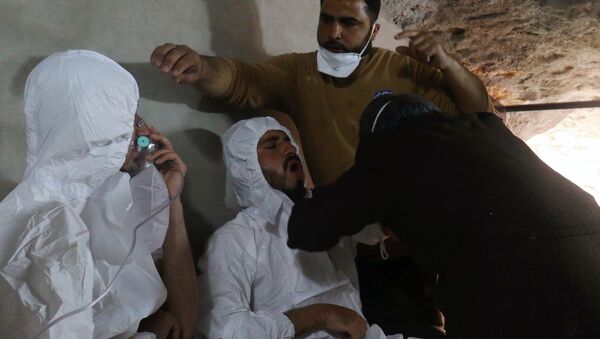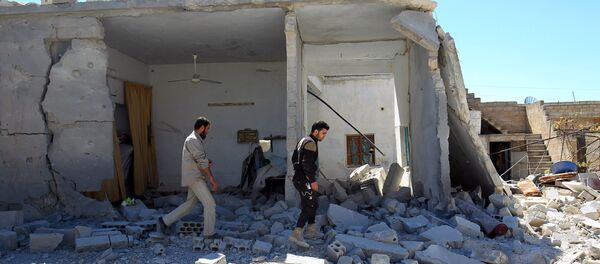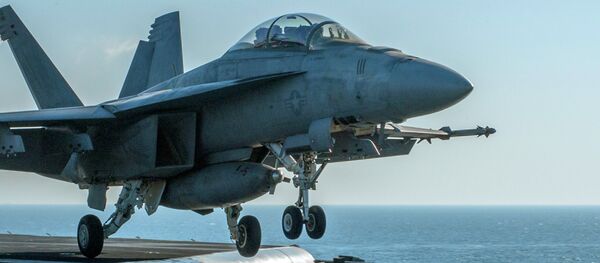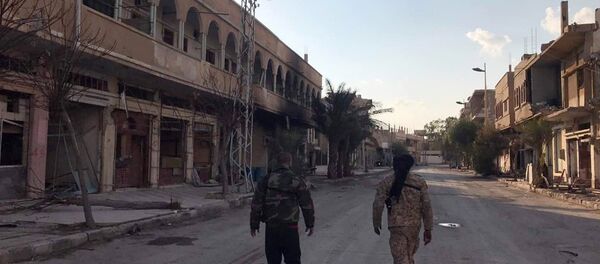Twenty years ago, in 1997, the Chemical Weapons Convention (CWC) entered into force. However, since not all countries have ratified the treaty, chemical weapons still pose a threat, especially when they end up in the hands of terrorists.
"Some states in the Middle East, as well as North Korea, have not signed or ratified the treaty," Guidotti told Sputnik. "The political situation in these countries is very unstable, and their non-adherence to the treaty poses a great risk, as they are not obliged to comply with the provisions of the convention."
"In addition, there is a threat of using chemical weapons by terrorists, because unlike other nontraditional weapons, chemical weapons can be produced even by small terrorist groups in an ordinary garage. It is rather difficult to control the production of chemical weapons, as the components for them can be easily bought on the market. There is a threat, and it is rather a terrorist than a military one," the Italian researcher said.
"No nation, no matter how large, could cope with this issue on its own," he stressed.
The Italian expert noted that there are still a number of small countries with chemical weapons reserves, which have remained since the First World War.
"We need to combine efforts of as many countries as possible to completely destroy chemical weapons," Guidotti reiterated, referring to the fact that in northeast Italy shells with chemical weapons used by Austria-Hungary against Italy still can be found.
"Even after a hundred years it is not easy to find and neutralize all of them," he added.
As for the recent chemical incident in the Syrian province of Idlib, international cooperation is crucial, according to the researcher.
"We need the opinions of chemists, doctors, pharmacists, and the military. It is necessary to use reliable sources," he underscored, "If, on the other hand, five or ten opinions on the matter are taken from Facebook or some unknown site, the ongoing conflict… could turn into a war based on pictures, that is, propaganda."
Guidotti highlighted that a serious analysis can be carried out on the ground only; furthermore, it requires special tools and procedures. And, undoubtedly the process needs to be transparent so that the international community could acquire reliable firsthand information.
"Otherwise, we will raise a false alarm," he warned.
"Italy also played a role [in the operation]," he remarked, "Chemical weapons were brought from Syria to the Italian port of Gioia Tauro. The operation involved many countries — from Denmark to the US and Russia, from Germany to Finland. Of course, this required a lot of time and money."
In his interview with Sputnik, Guidotti echoed Russian President Vladimir Putin, who told journalists, following his meeting with German Chancellor Angela Merkel, that "a thorough and comprehensive investigation into the incident in Khan Shaykhun" should be carried out.
"The Russian side noted the need for a thorough and comprehensive investigation of the incident in Khan Shaykhun on April 4. We strongly condemn any use of chemical weapons; those guilty of the death of peaceful Syrians must certainly be found and punished, but this can only be done as a result of a thorough and impartial investigation," Putin stressed.
On April 4, the National Coalition for Syrian Revolutionary and Opposition Forces pointed the finger of blame at Damascus for what they called a chemical attack in Khan Shaykhun. The Syrian government denied any involvement in the incident stressing that the Syrian Arab Army did not possess any chemical weapons, as they had all been destroyed by the OPCW.




